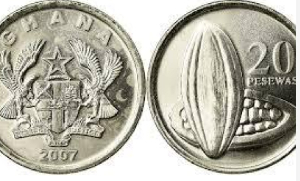The Ghana National Cargo Transporters Association (GNCTA) says it will continue to pursue its agenda to harmonise axel load policy among Ecowas countries.
Axle load is the acceptable weight of goods a vehicle is allowed to carry. An axle load policy is intended, among other things, to prolong the lifespan of roads.
Currently, the axel load policy among ECOWAS countries is not harmonised, according to a study of perspectives of transport sector stakeholders that was initiated by GNCTA with support from the BUSAC Fund.
The study commenced in June 2012 and was aimed at engaging the government to simplify the process for weighing trucks and make it fair, transparent and efficient to support the implementation of the common axle load policy.
Among steps intended to harmonise the policy between Ghana and ECOWAS include amending the current axle load limit of 10 tonnes to agree with the ECOWAS protocol limit of 11.5 tonnes. Additional limits will also be derived for axle types other than the single axle to which the 11.5 tonne limit applies.
The harmonised policy is to reduce the number of vehicles with axle load of more than 13 tonnes by 80%, and ensure that no truck axle load is more than 16 tonnes.
“There will be the need to play a greater role, especially in the education of members on new axle load regulations; negotiate some relief for transporters to famine and war-torn areas; and provide warehousing, transportation infrastructure and collateral management.
“There is also the need for greater involvement of private-sector operators in the drafting of the axle load policy to regulate the cargo transport industry,” the study stated.
It observed that cargo transporters face a number of constraints in the transportation of goods within the country and across borders within the West African sub-region.
Significant challenges identified during field interviews include the use of more cargo trucks to convey limited cargo as a result of axle load limitations, lack of good road networks, and harassment by law enforcement agencies such as the Police, Immigration and Custom Excise and Preventive Service (CEPS) – which tends to increase transportation costs.
French speaking countries in the West African Economic and Monetary Union (WAEMU) surround Ghana, making the language barrier and the WAEMU applicable regulations a concern for truck drivers from Ghana.
Yet Ghana is a regional leader in many road transport aspects, including complying with axle load regulations, governance, and infrastructure.
Ghana currently is one of the best performers in road governance across the region, with the lowest bribes and limited delays. However, the number of controls from the Police is still among the highest in the region – one control per 100 km. The number of controls from CEPS is also among the highest.
The report observed that there are many active checkpoints in Ghana: 44 checkpoints along the 880 km distance between the Port of Tema and the Burkina Faso border of Paga.
While most of these checkpoints do not operate on a systematic control basis, this can be considered a form of harassment, especially for foreign drivers, who are more likely to stop at every checkpoint, the report said.
The report advised that in order to optimise the impact of actions to reduce road harassment, stakeholders should focus on the checkpoints where higher harassment is experienced.
The report aims at being a useful tool for trade and transport stakeholders, whose ultimate goal is to boost economic growth and reduce poverty in order to facilitate trade. It also provides findings and recommendations in order to initiate targeted actions for improvement
Business News of Tuesday, 11 December 2012
Source: thebftonline.com












